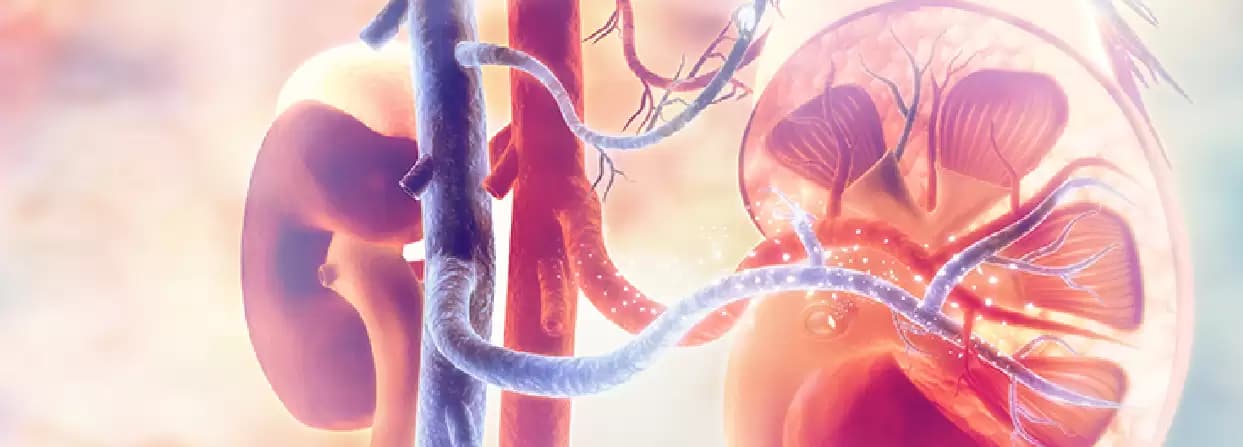
Renal parenchymal disease is a chronic condition affecting the kidney's filtering tissue, often leading to long-term kidney damage if left untreated. Early diagnosis, dietary changes, and medical intervention can help manage symptoms and prevent complications.
Renal parenchymal disease is more extensive than one might think, often goes undetected. It affects millions of people across the world and is a primary reason for chronic renal disease, which slowly worsens kidney function over time. This disease affects the kidney's critical tissue, which filters waste and keeps fluid balance. Even though it begins silently, irreversible damage can be prevented by diagnosing it in initial stages. Most patients aren’t aware they have it until symptoms such as edema or elevated blood pressure show up. Learning how common renal parenchymal disease encourages prompt intervention for improved kidney function and a proactive approach to long-term well-being. So, in this blog, we will cover all the aspects related to this condition. If you are experiencing any symptom you can consult best nephrologist in jaipur, at RBH.
Renal Parenchymal Disease is a medical condition that affects the functional section of the kidneys which includes the renal cortex (the outermost part of the kidney) and the renal medulla. Our kidneys comprise several components and structures containing nephrons which primarily filter blood and toxic waste from the kidneys. If the doctor suspects scarring changes in the substance of both kidneys, it is then termed bilateral renal parenchymal disease.
The bilateral renal parenchymal disease can be congenital (present during birth) or acquired (occurs in later stages of life). If left untreated, the renal parenchymal disease can lead to renal failure, electrolyte imbalance, low blood volume, dehydration, etc. Chronic renal parenchymal diseases approximately affect millions worldwide. Therefore, it is important to get timely treatment to avoid the risk of complications.
Doctors classify the different grades of renal parenchymal disease based on the severity and the extent of the medical condition. The doctor leverages sonography which helps determine three grades of renal parenchymal disease.
Renal parenchymal disease symptoms vary in patients depending on their medical condition, the severity of the disease and the part of the kidney affected. Most individuals experience early signs that gradually worsen as the condition becomes severe. Here are a few symptoms of the renal parenchymal disease -
The renal parenchymal disease can be difficult to determine since there are several factors that can progress the condition. Additionally, certain risk factors also contribute to the improper functioning of the kidneys and eventually lead to chronic renal parenchymal disease. Common causes include -
Since family history is a major risk factor that can lead to the development of chronic renal parenchymal disease, it is advisable to go for regular health checkups for early detection of the disease, if any. Furthermore, if you are experiencing any symptoms associated with improper kidney functioning, it is important to diagnose the condition for effective treatment.
Chronic renal parenchymal disease diagnosis involves a combination of symptom analysis and examining your medical history report. Since initial symptoms of Kidney parenchymal diseases are mostly silent, early diagnosis can ensure effective treatment and prevent the risk of complications. The doctor recommends the following tests depending on the grade of renal parenchymal disease -
treatment of renal parenchymal disease depend on the age, medical health of the patient, and the extent of severity. The doctor generally recommends a combination of medical management, lifestyle changes, dietary restrictions, therapies, and in extreme cases, a dialysis or kidney transplantation. Renal parenchymal disease treatment aims to control or alleviate the symptoms and prevent the condition from getting worse. The doctor may recommend the following options as effective treatment methods for chronic renal parenchymal disease -
Renal Parenchymal Disease is a serious condition affecting the ability of kidneys to function correctly leading to possible complications for long-term if not treated on time. Early diagnosis and timely interference with the doctor are crucial to manage the condition efficiently. People with this condition can involve proactive measures by learning about the condition like its symptoms, causes, and treatment options. This will assist in protecting kidney health and maintaining overall well-being. Hence, if you are diagnosed with this condition, make sure to speak to your doctor for customised care and direction.
Untreated renal parenchymal disease can impact kidney functioning and lead to a wide range of complications which include the development of secondary hypertension. This can further deteriorate the overall health of the individual.
Yes, chronic renal parenchymal disease can be dangerous if left untreated. Depending on the medical health of the patient, and the number of kidneys affected, the condition can become serious if it is diagnosed as higher grades of renal parenchymal disease.
Yes, chronic renal parenchymal disease can be cured if it is diagnosed during its early stages. Renal parenchymal disease treatment involves medications, lifestyle changes, retention management, physical therapy, dialysis, and kidney transplant. However, the cure also depends on the degree of kidney disease and the medical health of the individual.
It is not possible to completely reverse kidney damage, but certain treatment methods can improve kidney health. Get in touch with a nephrologist in case you are experiencing early signs of chronic renal parenchymal disease.
Yes, renal parenchymal disease is another name for chronic kidney disease. Medical conditions that affect kidney functioning are called renal parenchymal disease.
Written and Verified by:

Dr. Aashish K. Sharma is the Director of Orthopaedics & Joint Replacement Dept. at CK Birla Hospital, Jaipur, with nearly 30 years of experience. He is a leading specialist in joint replacement, arthroscopy and sports medicine, particularly hip & knee surgeries and ACL reconstructions.
Similar Renal Sciences Blogs
Book Your Appointment TODAY
© 2024 RBH Jaipur. All Rights Reserved.